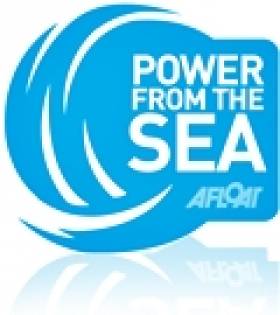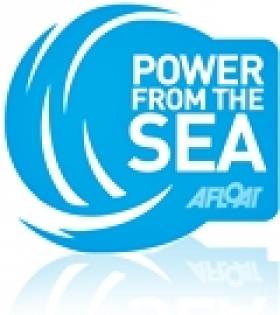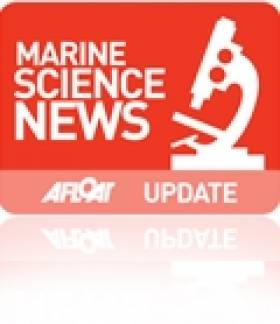Displaying items by tag: Conor Haughey
Conor Haughey of Malahide admits to an addiction. It’s to saltwater and long-distance voyaging. But though he has made several transoceanic passages, it wasn’t until he bought the comfortable yet swift Moody 54DS Hibernian that he reckoned he could take on the ARC (Atlantic Rally for Cruisers) from the Canaries to the Caribbean in a reasonably competitive style, while continuing to be crewed by friends.
They elected to do the ARC +, the two-stage version which takes in a stop at the Cape Verde islands, and it was the second stage from the Cape Verdes to Grenada that saw Hibernian confirm her position as one of the flyers in the fleet. She swept in to the finish ahead of expected time on December 3rd to take Line Honours in Class and in the Cruising Division, neatly ahead of an impressive fleet that included a notable number of much larger craft.
 Swift yet comfortable – Conor Haughey’s stylish Hibernian, a Moody 54DS, proved a successful competitor at the December finish of the Transatlantic 2021 ARC +
Swift yet comfortable – Conor Haughey’s stylish Hibernian, a Moody 54DS, proved a successful competitor at the December finish of the Transatlantic 2021 ARC +
Conor Haughey of Malahide’s handsome Moody 54DS Hibernian swept into the finish of the ARC 2021 in Grenada this morning to chalk up a notable international success for Ireland. Hibernian - which sailed the longer ARC + course to take in a brief stopover in the Cape Verde Islands - is currently posted as first in the two main cruiser divisions and fourth overall in Mono-Hulls Line Honours, a remarkable achievement in this mega-fleet event.
Other recent placings of Irish boats still at sea include Nautilus (Lagoon 46 catamaran, Brian O’Sullivan, Tralee) 18th OA, Lir (Lagoon 450S, Brendan Cahill, Waterford) 33rd OA, 9th MultihullA, Ruth II (Oyster 625, 32nd OA in ARC Direct, 13th Cruisers A, Viente (Halberg Rassy 40, David Kelly, Waterford) 112th OA in LH, 7th Cruising E.
Race Tracker here
Grenada has welcomed the first arrival of ARC+ 2021 as Pierre De Saint-Vincent’s Outremer 51 Piment Rouge (FRA) claimed line honours in the second leg of the cruising rally from Mindelo, Cape Verde.
As Afloat reported yesterday, Malahide's Conor Haughey's Hibernian remains the top cruiser with an estimated finish time early tomorrow morning.
The next Irish boat estimated to finish is Tralee Bay's Brian O'Sullivan and Francis Clifford's Navillus Lagoon catamaran currently lying in 19th overall and fifth multihull.
The new French winning multihull, sailed by a crew of six, crossed the finish line off Quarantine Point, St George’s, Grenada at 23:10:23 local time on Wednesday 1st December, completing their transatlantic crossing after 12 days and 14 hours at sea. Arriving after 2,424nm of sailing, there were loud cheers from the crew and music blasting out from the comfortable deck of the catamaran to hail their arrival.
The crew were elated to be the first boat to finish and after crossing the line, made their way into the Carenage, the lively waterfront area which winds around the inner harbour, before being guided by Dock Master Joel into Camper & Nicholsons Port Louis Marina where the ARC+ boats will be hosted over the next few days.
The ARC+ yellowshirts and Marina Manager Zara Tremlett were waiting for Piment Rouge on the dock to give a very warm Spice Island welcome and lines were made fast, the crew donned fun long black wigs and sunglasses for their night time arrival before spraying a bottle of French champagne to celebrate their victory! It has not been an easy run across the Atlantic with light airs haunting the rhumb line route requiring the navigators to sail further south than ever before in search of the tradewinds, but the adrenaline of making landfall and excitement of such a warm welcome provided a fitting end to their voyage.
“I’m feeling good. The ARC+ was a very good experience with a very good crew and there was a great atmosphere on board. We sailed all the time apart from about 4 hours using the engine. We went south and made at least 20 directional changes en route to Grenada from Cape Verde. The last two days were quite difficult, with a lot of rain, but we managed a 240nm run in the last 24 hours. I’ve only had the boat since July but I know now that Piment Rouge is a good boat," said Pierre De Saint-Vincent.
The Piment Rouge crew: Pierre De Saint-Vincent, Hervé Cardona, Catherine Ducret, Vincent Henry, Serge Milliard and Sylvie Servoles.
The first arrival is a special moment as it officially kicks off the ARC+ arrival programme in Grenada. Welcoming the ARC+ fleet for the first time, the Grenada Tourism Authority and staff of Camper & Nicholsons Port Louis Marina have been diligently planning a programme of events compliant with COVID protocols and are dedicated to giving ARC+ sailors the warmest of welcomes to ‘pure Grenada’. A further 70 yachts will make landfall in the coming days and indeed there was not long to wait until the second arrival, Neel 47 BigBird (USA) crossed the line at 04:56:19 local time.
All the yachts are equipped with a YB Tracker, regularly updating their position to the online Fleet Viewer and YB Races app for friends and family to follow the fleet. Tales of fishing triumphs and tradewind sailing will also be sent to the World Cruising Club website, as participants share their ocean adventures.
#oceanenergy – Conor Haughey is to Chair the Irish Wave Energy Device Developers Association (IWEDA) following its inaugural meeting on 18 April, 2014 at NUI Maynooth. The organisation is made up of 11 Irish companies who are all developing different Ocean Energy Technologies.
The aim of the association are
• To promote the establishment a viable Ocean Energy Industry in Ireland.
• To secure government and EU support for the industry.
• To promote the industry to private equity investors.
• To collaborate resources and agree best development protocols
• To lobby state agencies involved in the sector for a better terms for our members.
• To address the imbalance between public monies available for academic research and that available to industry.
• To lobby Universities for better terms for access to facilities and research.
• To develop a 1/15th scale test site to complement existing Irish infrastructures that will address problems at an early stage before proceeding to the 1/4 scale Galway Bay site.
Considerable amounts of public monies have been spent on developing laboratory test facilities and ocean test sites in Ireland. This money will be wasted if Irish developers remain underfunded and unable to develop devices to be tested in these facilities.
With proper investment, government support and the help of research institutions we can create an Irish based global industry employing many thousands of people, while making a huge contribution to the economy and enable Ireland to reach its renewable energy targets.
Member Companies
1 Benson Engineering Tom Benson
2 Jospa Patrick Duffy/ Joss Fitzpatrick
3 JJ Campbell & Assoc Emmet Farrell/John Farrell
Wave Energy Ireland
4 Sea Energies Sean Lavelle
5 Blue Power Energy Conor Haughey/Damien Browne
6 Ocean Renewables Brendan McGrath
7 Wave Force Energy John Miller/David Beattie/Lawrence Crane
8 Cyan Technologies Tim Morrissey
9 Wavetech Energy Peter Redden
10 Limerick Wave Paddy Walsh/Paddy Kelly
11 Waveset John Beilenberg
Haughey's Son Seeking Investors for Ocean Energy Project
#POWER FROM THE SEA - Conor Haughey is seeking €3 million investment in new wave power technology inspired by his father's attempts at making his private island self-sufficient, as the Sunday Independent reports.
Haughey, son of former Taoiseach Charles Haughey, says his company Blue Power has developed a new way of capturing energy from ocean waves - and that tests at UCC's Hydraulic Marine Research Centre have concluded the technology is superior to many existing products in the sector.
He said: "We thought, how can we harness the power of the ocean on our doorstep? We have the best waves in the whole world. The west coast of Ireland is a huge untapped resource."
The company is now looking for angel investors or a utility parter to develop the technology for commercial use.
Engineer Colin O'Brien, who will be desiging Blue Power's prototypes, commented: "The whole west coast of Ireland has incredible waves. We could be the Saudi Arabia of renewable energy."
The Sunday Independent has more on the story HERE.
Celtic Mist Offered as Gift to IWDG
The yacht sailed by late former Taoiseach Charles Haughey has been offered as gift to the Irish Whale and Dolphin Group (IWDG) as a research vessel.
The Irish Times reports that 52ft Celtic Mist had been on sale in the Isle of Wight for €175,000 since last year, but with the market at a low ebb, son Conor Haughey invited the IWDG to take over the vessel, subject to negotation.
The IWDG's Simon Berrow said the group's membership showed "overwhelming support" for the gift, and is currently looking into sponsorship to support the yacht for research, as maintenance costs would run around €20,000 per year.
The Celtic Mist was once the subject of some controversy when it emerged during the Moriarty Tribunal that businessman Dermot Desmond had paid refurbishment costs of €75,000, a sum that exceeded Haughey's then salary as Taoiseach.































































